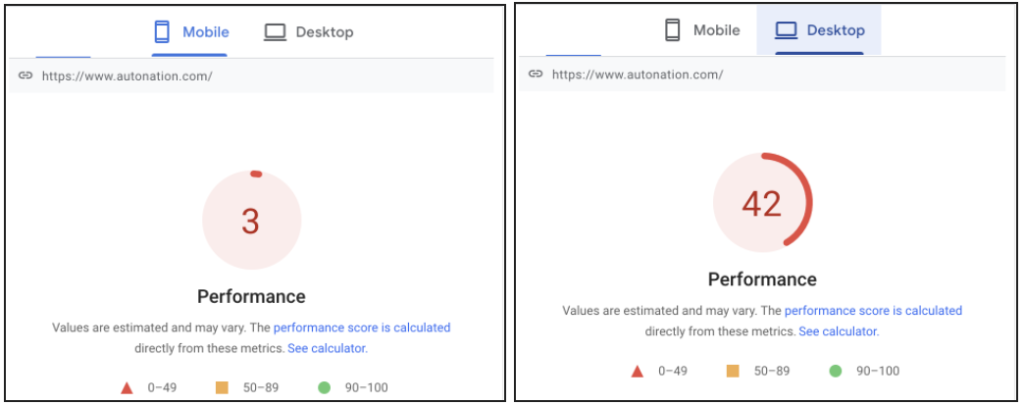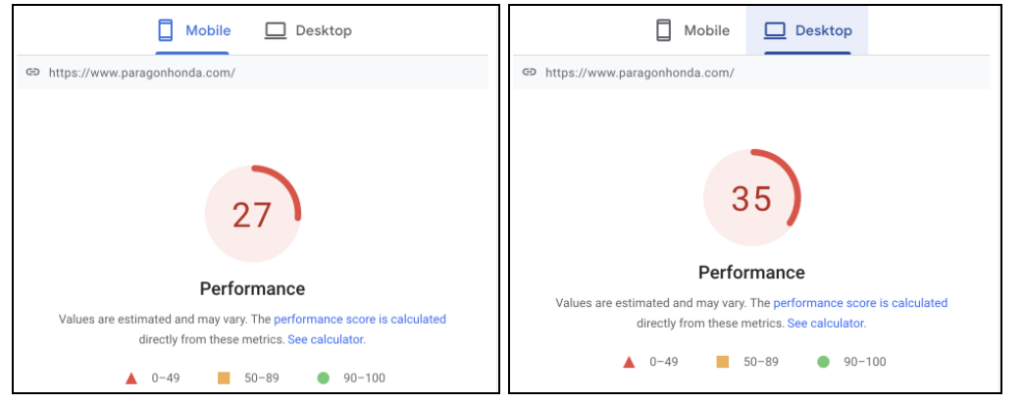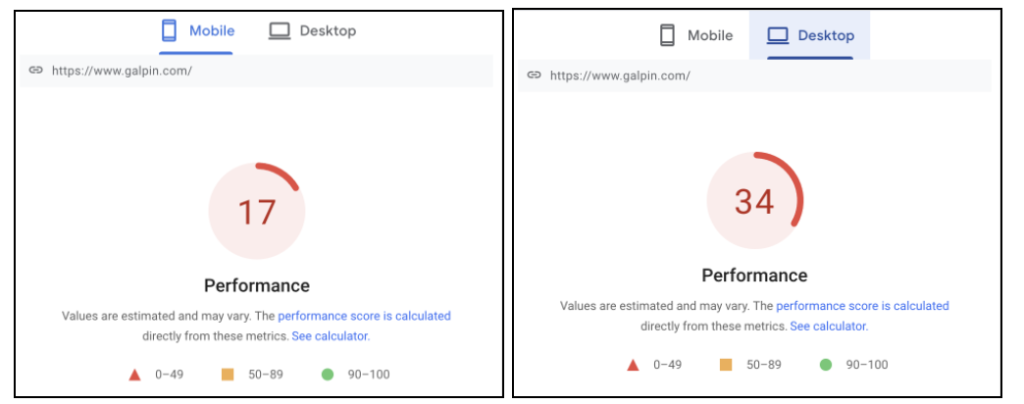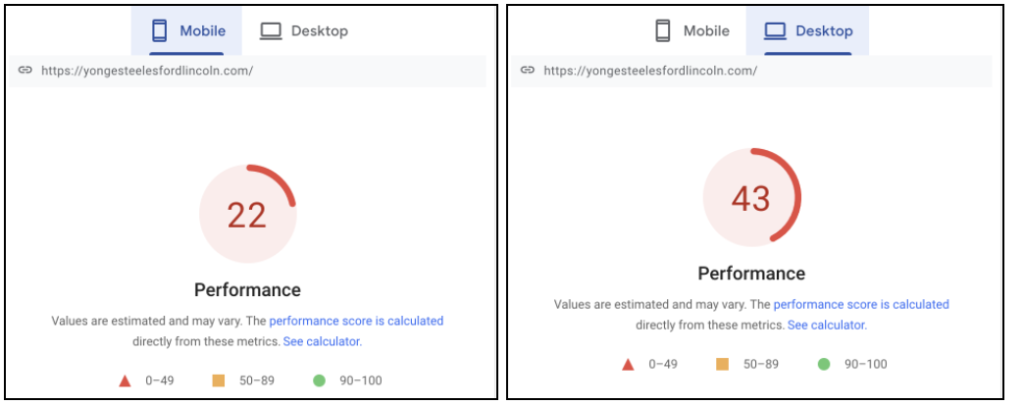
Have you ever tried to park at Costco on a busy weekend? Stalking the shoppers that are leaving, checking out their carts to see how much stuff they have so you know how long it will take them to load up and get out of there. If their cart is overflowing with goodies, chances are you’re going to wait a bit. If there are just a couple of items to unload, you’ll get into that spot a lot faster.
Websites are a lot like people loading their cars after a shop. If your website is content-rich and full of multiple integrations and add-ons, it’s going to be a little less speedy than a simple website that contains a logo and contact information. For Dealers, who tend to have many moving parts within their websites, this can complicate things when it comes to measuring site speed.
Popular online tools like Google PageSpeed Insights analyze your website and give you a score based on its performance. Typically sites with lots of graphics and interaction – like dealer sites, don’t score as well on these measurements.
But that shouldn’t be alarming as we need to consider these scores relative to similar websites.
Google PageSpeed Insights is a measurement tool used to understand site speed and performance. Google provides a score out of 100 based on the load time of certain milestones, like the first time you see images or the first time you can interact with the site.
Google uses the PageSpeed scores as part of its algorithm to determine search rankings. So for a Dealership, measurement of their PageSpeed score can be related to their ability to move up Google’s search results. But, to put it in perspective, there are over 200 (known) and many more unknown elements in how Google ranks your site.
While SEO and user experience (including site speed) are important, these site PageSpeed metrics are not the most important or impactful factors contributing to how Google ranks your website or how well Dealers can market their vehicles.
According to Google themselves, “These ranking systems are made up of not one, but a whole series of algorithms. To give you the most useful information, Search algorithms look at many factors, including the words of your query, relevance and usability of pages, the expertise of sources, and your location and settings.”
Yes and no.
According to Kinsta.com, a popular website hosting tool, “We’ve noticed that a lot of people spend hours obsessing over optimizing their sites, in order to try and score 100/100 on this test. The truth is that this isn’t how Google PageSpeed Insights is meant to be used, nor is it a worthwhile pursuit.”
Dealership websites are like the full cart in the Costco parking lot. Full of sliders, chat widgets, pop-ups, fonts, Facebook/Instagram widgets, just to name a few.
All these elements require code and images to display correctly. Unfortunately, these things slow down the site and hurt your PageSpeed score.
To increase your PageSpeed scores, Dealers would need to forgo these items.
Are you willing to give up chat and great vehicle images to increase Google’s PageSpeed metric? Probably not. A higher score isn’t necessarily better if it reduces the ability to showcase your vehicles and drive leads.
In fact, many large and established dealers make a significant impact in their markets while scores are in the red.
Autonation

Paragon Honda

Galpin Ford

Younge Steels Ford Lincoln

Your website vendor, like Leadbox, is always working on improving site speed.
Bottom line, Google’s PageSpeed Insights is a tool used to measure your site’s performance to help you and your Vendor Partner improve the speed of your site. For any Dealership, it’s crucial to weigh the ability to properly promote your cars vs the unrealistic goal of 100/100 on a site speed test.
However, as a Dealer, if you want to improve your search ranking results and your ability to promote your vehicles, there are many other tactics. You can focus on Local SEO, category-specific landing pages (including inventory) and other great content for car buyers. Changes like these will make a much more significant impact than focusing on PageSpeed Insight Scores.
Categories
Website ProductAn NADA Show for the history books
January 30, 2025
Push vs. Pull Marketing: Striking the Right Balance for Success
January 15, 2025
How can AI help your dealership? Let’s find out!
December 18, 2024
Do Dealer Display Ads Still Suck? Let’s Find Out!
November 25, 2024